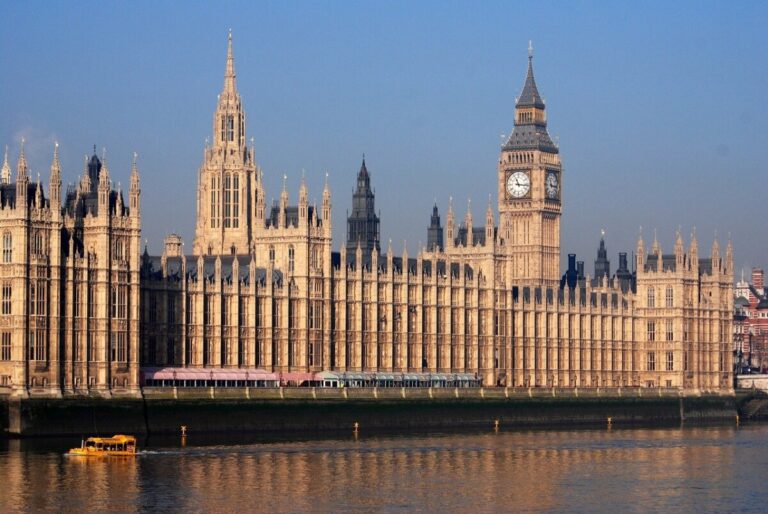Spring Budget ‘another missed opportunity’

Sector reactions to the Spring Budget have called it a ‘missed opportunity’ that offers little to help charities.
Among the plans announced by Chancellor Jeremy Hunt were a 2p cut to National Insurance, an increase in the threshold for child benefit, and an axing of the UK’s tax breaks for non-doms.
For charities claiming Gift Aid, Hunt announced an amendment to protect them from subscription legislation, and he also announced extra funding for the National Theatre (£26mn), and medical research charities (£45mn).
Advertisement
The Household Support Fund, which was introduced by the government in 2021 to help families struggling with the cost of living, has been extended by six months.
Sector response
‘Another missed opportunity’
Commenting on the Budget, Sarah Vibert, CEO of NCVO, commented:
“Today could have been a key moment to bolster and empower the voluntary sector as a vital partner for government in the delivery of public services. But instead, we have another missed opportunity.
“Following a decade of cuts, a pandemic, and the ongoing cost of living crisis, the voluntary sector is doing its best to continue to meet high and growing demand with ever-fewer resources. But our best may not be enough for the people who rely on our support. We’ve been clear that we need bold action from government.
“We welcome some of the Chancellor’s announcements – including increasing the child benefit threshold and the short-term extension of the Household Support Fund – but today’s budget was most notable for what it didn’t include. Its measures will not improve things for most people and communities seeking support from charities. They will continue to pay the price of government inaction.”
‘Ignores the elephant in the room’
Locality’s Chief Executive, Tony Armstrong said:
“With electoral politics taking centre stage, this budget has ignored the elephant in the room.
“Mounting pressure on councils to cut services and sell assets just means local people are paying the cost. From Birmingham to Bristol, Nottingham to Thurrock, council cuts mean that charities and community organisations are struggling to keep vital local spaces and services alive.
“It’s clear that a more sustainable long-term funding settlement for local government is needed. On that the Chancellor remained silent. The Government needs to act now to stop the loss of key services and spaces which have been vital in holding communities together. Local people should not bear the brunt of council’s financial problems.
“But ultimately, we have to move away from short term funding crises to create a longer term shift of power. That’s why in our manifesto we’re calling for radical reforms that put power firmly in community hands. That includes decision making powers for local people so that communities themselves can take charge of the things which are important to them.”
‘Fails to address critical issues’
Richard Sagar, Head of Policy at Charity Finance Group, commented:
“We welcome the news on funding for creative industries, but in the context of local government funding collapse, it’s hard to see how this will help the arts sector at the grassroots level.
“We also welcome the government’s firm commitment to ensure charities can continue to claim Gift Aid on membership subscriptions.
“Concerns remain about the DMCC Bill, but we will engage with government to address concerns about a ‘cooling off period’ and work to ensure that the government also creates guidance and support for affected charities.
“Once again, we’re disappointed that there is a lack of clarity on how the government will put local authorities on a sustainable financial footing. The third sector is sounding the alarm, and it remains unheard.
“On the whole, there were a few positives, but a lot of crucial issues remain unaddressed and the announcements will do little to increase confidence and certainty.”
‘Little designed to support those in greatest need’
Matt Whittaker, CEO of Pro Bono Economics, said:
“While temporary maintenance of the Household Support Fund is welcome, there is little else in today’s announcement designed to support those in the greatest need. That is likely to mean demand on the nation’s charities continuing to climb. The charity sector is just beginning to emerge from the pandemic and cost of living crisis, and capacity remains tight – with a third of charities expecting to be unable to meet demand for their services this quarter. Indications are that charity income will gradually improve over the next year, but that recovery is fragile.
“The Chancellor’s emphasis on public sector productivity is likewise welcome but insufficient. Investing in delivering better services is the right thing to do, but he should have done more to offset the £20 billion a year real-terms reduction in spending on unprotected public services that is currently pencilled in for 2028. Failing to act on this implies a level of Austerity 2.0 which is simply unrealistic at a time when local government is faltering and courts, prisons and social care are already wrestling with difficulties. Whoever is in charge of HM Treasury at the next Spending Review will inevitably have to change course.
“For all that the Chancellor pulled a rabbit out of the hat on National Insurance, his real sleight of hand was on disappearing the crisis in local government in his statement. Councils are issuing section 114 notices at unprecedented rates, and cuts are following rapidly, including to vital community services. Among the 60% of charities responding to PBE surveys that say they work with local authorities, 28% expect a reduction in council funding over the coming year. This follows a cumulative loss of £13.2 billion to charities from local government between 2009-10 and 2020-21. People with the lowest wellbeing and the charities that support them will continue to struggle as long as this crisis remains unaddressed.”






